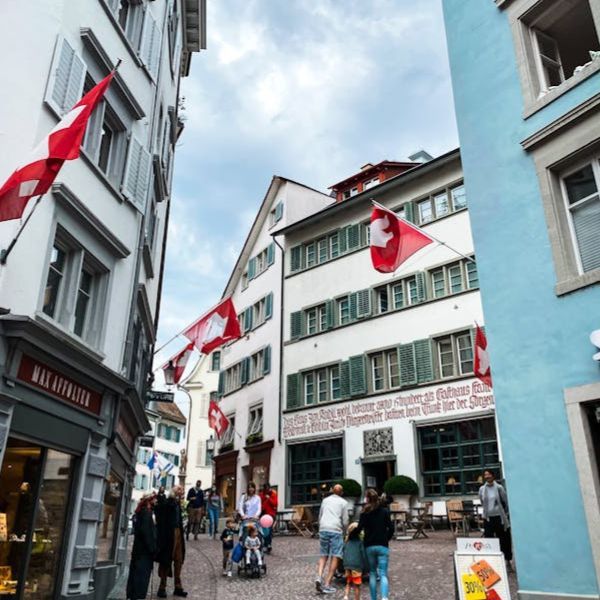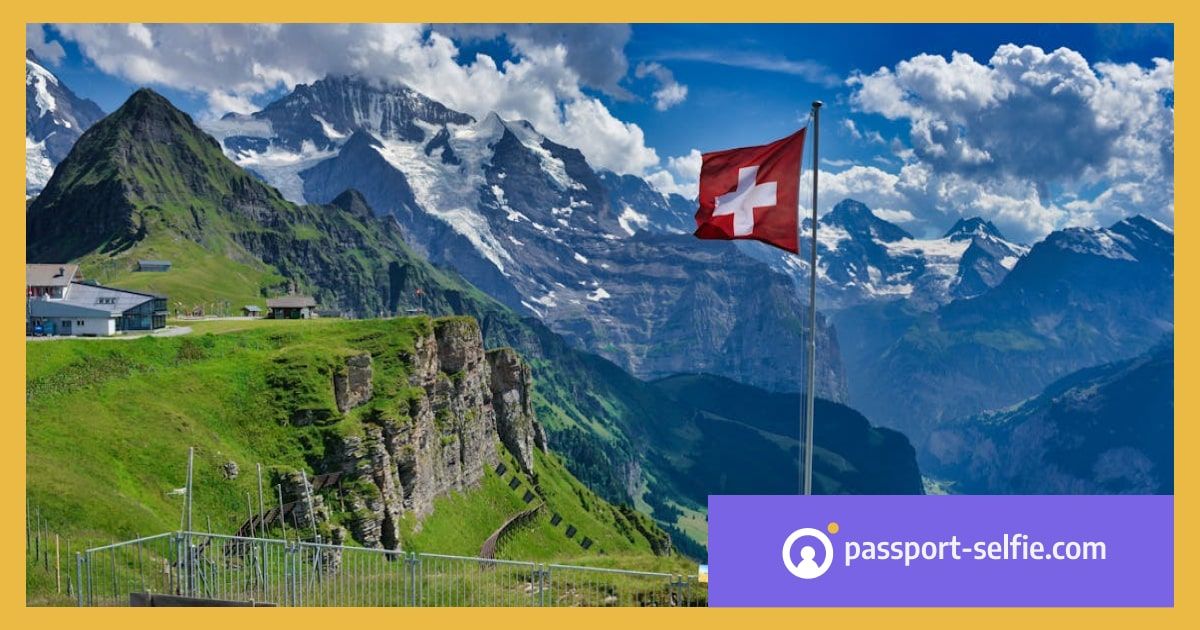Summary
Don't have time to read through this article? We've summarized all the important points for you:
- The Swiss residence permits (L, B, C, G, Ci, F, N, S) cater to various needs and durations.
- Key documents required include valid passport, health insurance, proof of financial means, accommodation, and purpose-specific documents (job offer, acceptance letter, etc.).
- Applying from abroad requires starting at a Swiss consulate, while within Switzerland involves direct local registration and cantonal application.
- Be aware of possible language proficiency requirements and quota limitations for non-EU/EFTA nationals.
Switzerland is not just known for its breathtaking landscapes and high quality of life, but also for its structured and clear process for residence permits.
However, understanding the rules for living and working in Switzerland can be tricky since they vary depending on your nationality and how long you plan to stay. In this article, we'll give you the key info you need to plan your residence application, whether you're applying from inside or outside Switzerland.
Swiss Residence Permits

Here's a breakdown to help you understand who needs a permit:
- EU/EFTA Citizens: Citizens from EU/EFTA countries can live and work in Switzerland under the Agreement on the Free Movement of Persons. They need a residence permit, which also serves as a work permit.
- Non-EU/EFTA Citizens: Nationals from countries outside the EU/EFTA need a work permit to immigrate to Switzerland for employment. The process involves the employer applying for the permit from the competent authority.
- UK Nationals: Post-Brexit, UK nationals are subject to the Foreign Nationals and Integration Act (FNIA) and require a work permit, with quotas in place.
- Croatian Nationals: As of January 1, 2023, Croatian nationals need a quota permit to work in Switzerland.
Our Tip: Keep in mind that some foreigners might also need a visa to enter the country. Find out if this applies to you and learn how to get your visa here.
Types of Residence Permits in Switzerland
Switzerland provides various residence permits, each designed to accommodate different needs and lengths of stay.
Here are the primary types:
- Permit L (Short-term residence permit): Granted for stays up to one year, typically for temporary employment or short-term projects. It may be extended under specific conditions.
- Permit B (Initial residence permit): Issued for stays longer than one year, commonly for employment, family reunification, or study purposes. Usually valid for one year, it can be renewed annually.
- Permit C (Settlement permit): Available after five or ten years of continuous residence, depending on the individual's nationality. This permit allows permanent residency and offers rights similar to those of Swiss citizens.
- Permit G (Cross-border commuter permit): Designed for individuals living in neighboring countries but working in Switzerland. Permit holders must return to their home country at least once a week.
- Permit Ci (Residence permit with gainful employment): For family members of employees working for international organizations or foreign diplomatic missions in Switzerland, allowing both residence and employment.
- Permit F (Provisionally admitted foreigners): For individuals whose asylum applications have been denied but who cannot be deported for various reasons. This permit permits temporary residence and limited work rights.
- Permit N (Asylum seekers): Issued to individuals who have applied for asylum and are awaiting a decision. It provides temporary residence and limited work rights.
- Permit S (Persons in need of protection): For those needing protection but not qualifying as refugees. This permit allows temporary residence and limited work rights.
Swiss Residence Permits Options Beyond Work and Study
While work and study visas are the most common reasons for moving to Switzerland, these are other popular residence permits available for foreigners:
Family Reunification Permit:
If you have close family members who are Swiss citizens or permanent residents, you may be eligible for a family reunification permit. This allows spouses, registered partners, and children under 18 to join their family in Switzerland.
- Eligibility: Spouses, registered partners, and children under 18 of Swiss citizens or permanent residents.
- Requirements: Proof of relationship (marriage certificate, birth certificate), adequate housing, and financial support to care for additional family members.
Investor or Entrepreneur Permit:
Switzerland welcomes foreign investors and entrepreneurs who wish to start a business or invest significantly in the Swiss economy.
- Eligibility: Individuals who plan to invest a substantial amount in a Swiss business or establish a company that creates jobs for Swiss residents.
- Requirements: A comprehensive business plan, proof of financial investment, and evidence that the business will contribute to the local economy.
Young Professionals Visa or Trainee Visa:
Switzerland has established trainee exchange agreements with several countries to help young professionals gain valuable occupational and language skills in Switzerland. These agreements make it easier for trainees from participating countries to obtain Swiss residence and work permits, streamlining the process regardless of the current labor market conditions.
- Eligibility: Applicants should be between 18 and 35 years old, hold a degree or be in higher education, and be a citizen of a country with a trainee exchange agreement with Switzerland.
- Requirements: Secure a position with a Swiss employer willing to provide training. You also need to apply through the Swiss embassy or consulate and pay the visa fee.
Application Process and Documents

Applying for a Work or Study Swiss Visa (from outside Switzerland)
If you're planning to work or study in Switzerland, obtaining the appropriate visa is crucial. Here are the most important steps to help you navigate the application process for a Swiss work or study visa from outside the country.
- Identify the Correct Visa Type
- Work Visa: For individuals with a job offer from a Swiss employer.
- Study Visa: For students accepted into a Swiss educational institution.
- Prepare Your Documentation
- Completed Visa Application Form: Fill out the appropriate form accurately, which can often be completed online or in paper form.
- Valid Passport: Ensure your passport is valid for at least three months beyond your planned departure from Switzerland and has at least two blank pages.
- Passport Photos: Provide recent passport photos 35x45 mm that meet the Swiss visa photo requirements.
- Proof of Travel Insurance: Show proof of health insurance covering medical expenses up to at least €30,000, including emergency medical treatment and repatriation.
- Travel Itinerary: Submit your flight reservation, including return or onward travel details.
- Proof of Accommodation: Provide evidence of where you'll be staying, such as a rental contract, hotel reservation, or a letter of invitation from a host.
- Financial Proof: Demonstrate that you have sufficient financial resources to support yourself during your stay, such as bank statements, salary slips, or a sponsorship letter.
- Specific Requirements for Work and Study Visas
- Work Visa:
- Job Offer: Provide a job offer or employment contract from a Swiss employer.
- Employer Documentation: Your employer may need to submit additional documents to prove that no suitable candidates were found within Switzerland or the EU/EFTA.
- Study Visa:
- Acceptance Letter: Submit an acceptance letter from a recognized Swiss educational institution.
- Proof of Enrollment and Tuition Payment: Show proof of enrollment and, if applicable, payment of tuition fees.
- Work Visa:
- Schedule an Appointment: Contact the Swiss embassy or consulate in your home country to schedule an appointment for submitting your application and biometric data (fingerprints and photo).
- Submit Your Application: Attend the appointment with all required documents. Be prepared to answer questions about your trip and provide any additional information if requested.
- Pay the Visa Fee: Pay the visa application fee, which varies depending on the type of visa and your nationality. The fee is usually non-refundable.
- Await Processing
- Processing Times: Typically, it takes between 10 to 15 working days for short-term visas, but long-term visa applications (work and study) may take several weeks to a few months.
- Additional Processing: Some applications may require additional checks, potentially extending the processing time.
- Receive Your Visa: Once approved, your visa will be affixed to your passport. Check the details to ensure everything is correct.
Applying for a Swiss Residence Permit from Within Switzerland
Similar to applying from abroad, you'll need a valid passport, passport photos, proof of health insurance, proof of financial means, proof of accommodation, and specific documents based on your stay’s purpose.
The basic steps in the application process are also similar, however there are some differences you need to take into account:
Direct Registration:
- Initial Entry: If you enter Switzerland without needing a visa (e.g., EU/EFTA nationals or visa-exempt countries for short stays), you can directly register with local authorities.
- Residence Permit Application: Submit your application for a residence permit to the cantonal migration office within 14 days of arrival.
Local Procedures:
- Biometrics and Interviews: You may need to provide biometric data and possibly attend an interview.
No Entry Visa Required:
- No Pre-Approval: Unlike applying from abroad, you don't need to secure an entry visa before traveling to Switzerland. You can handle all permit-related processes after arrival.
Our Tip: Use our passport photo online app for easy, step-by-step guidance to create biometric photos that comply with Switzerland's specific standards, helping you prevent common mistakes and rejections.
Key Considerations when Applying for a Swiss Residence Permit
- Quotas: Switzerland has quotas for non-EU/EFTA nationals, so it's important to apply early.
- Cantons: Requirements can vary between different Swiss cantons. Make sure to check the specific rules for the canton you plan to live in.
- Language: Depending on the canton, you may need to prove proficiency in German, French, or Italian.
- Register with Local Authorities: Within 14 days of arrival, you must register with the Residents' Registry Office (Einwohnerkontrolle) at your local commune (Gemeinde).
Our Tip: For more detailed information and the latest updates, visit the Federal Department of Foreign Affairs and State Secretariat for Migration websites.
By staying informed and prepared, you can make your move to Switzerland as seamless as possible.
Author: Valeria Calpanchay
Valeria Calpanchay is a seasoned globetrotter with a deep passion for digital product design, marketing, writing, and online media. Her expertise allows her to provide valuable guides for passport photos on our website, delighting our users with her insights.






